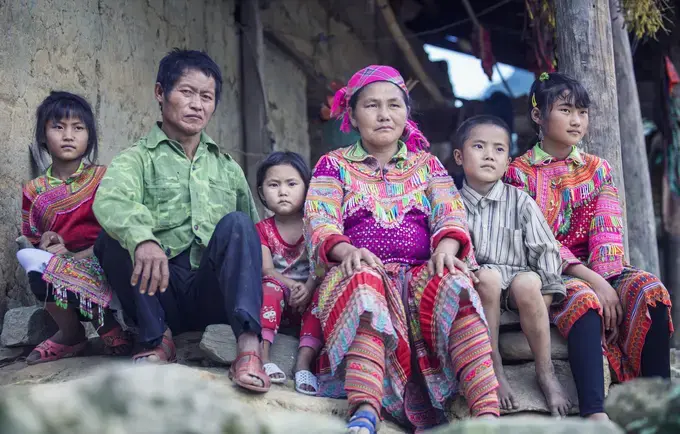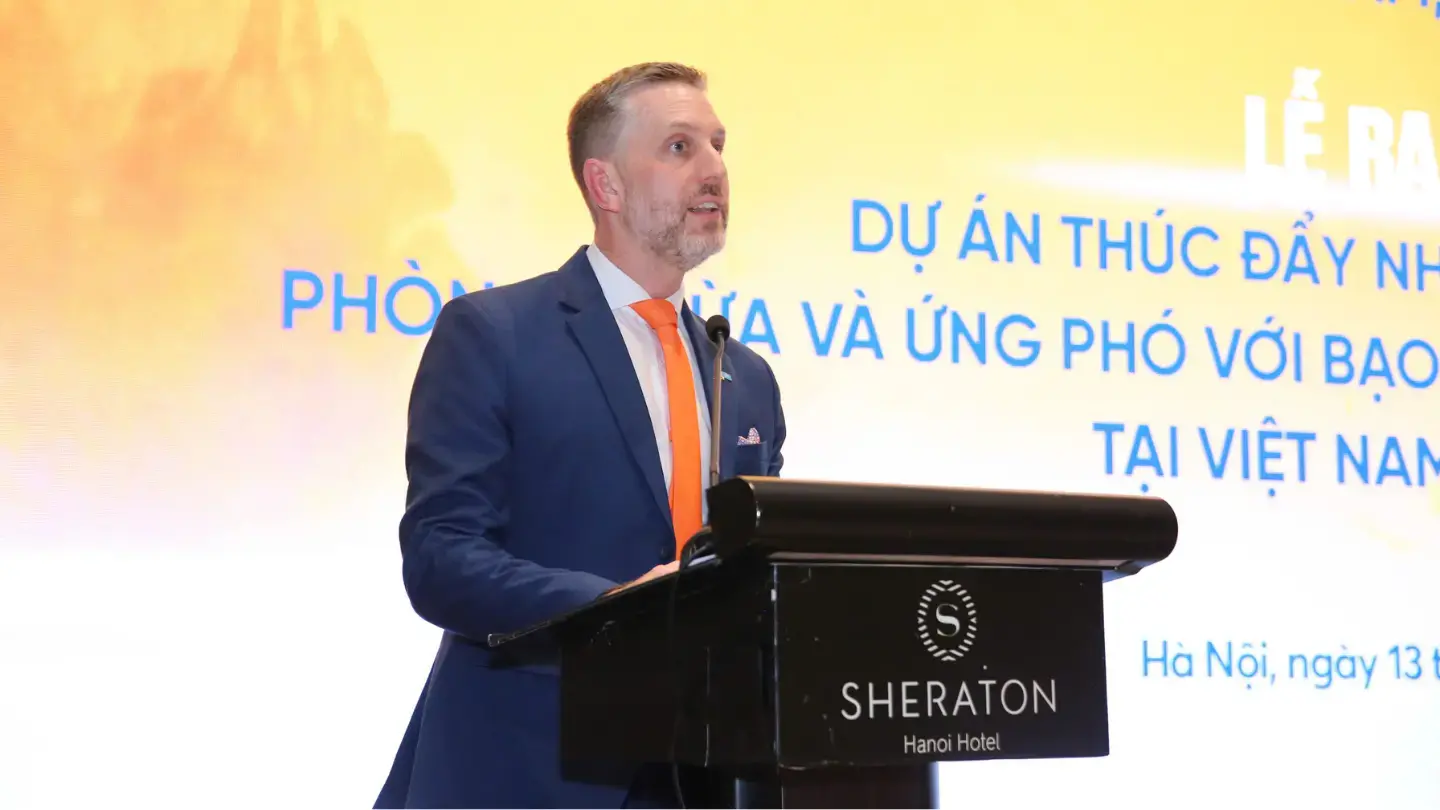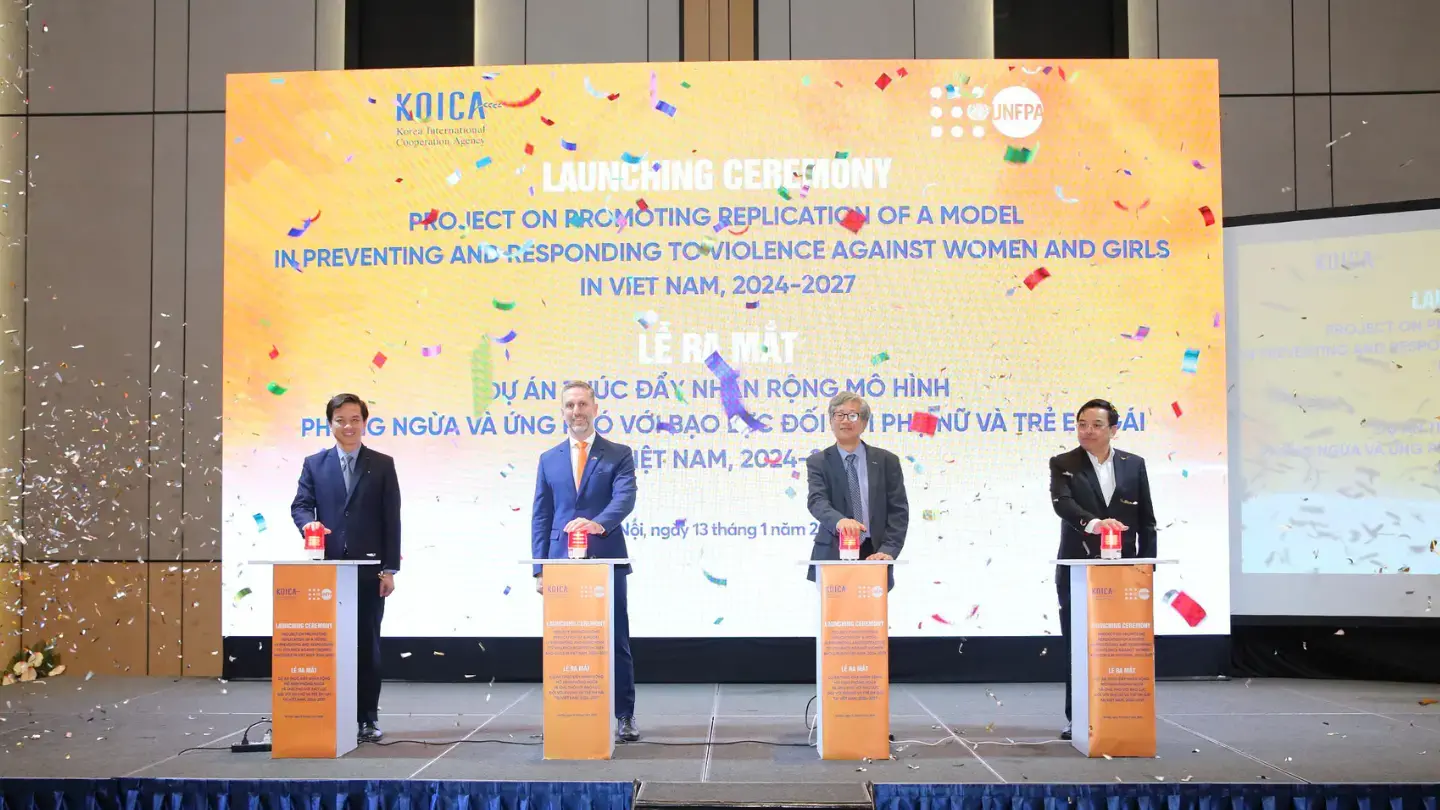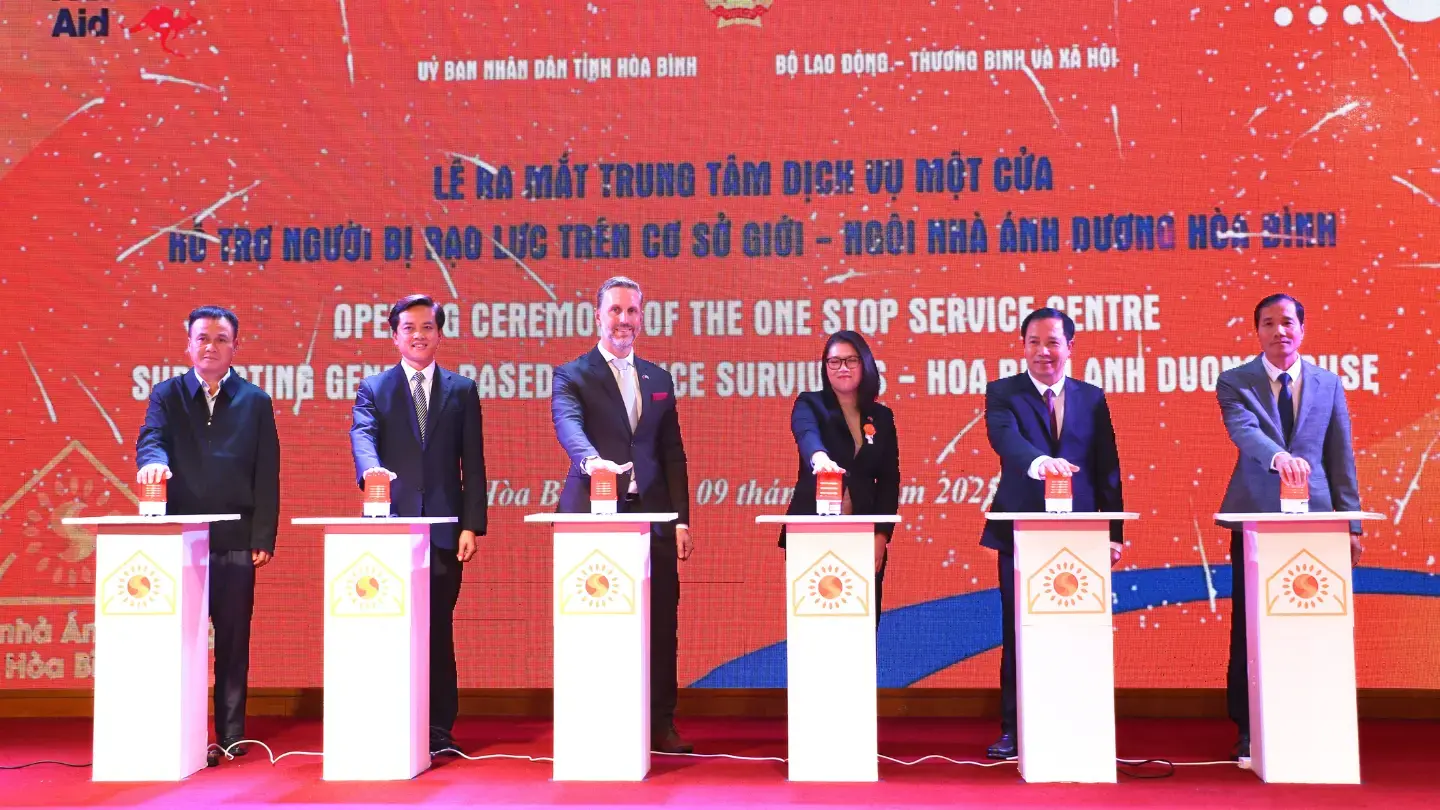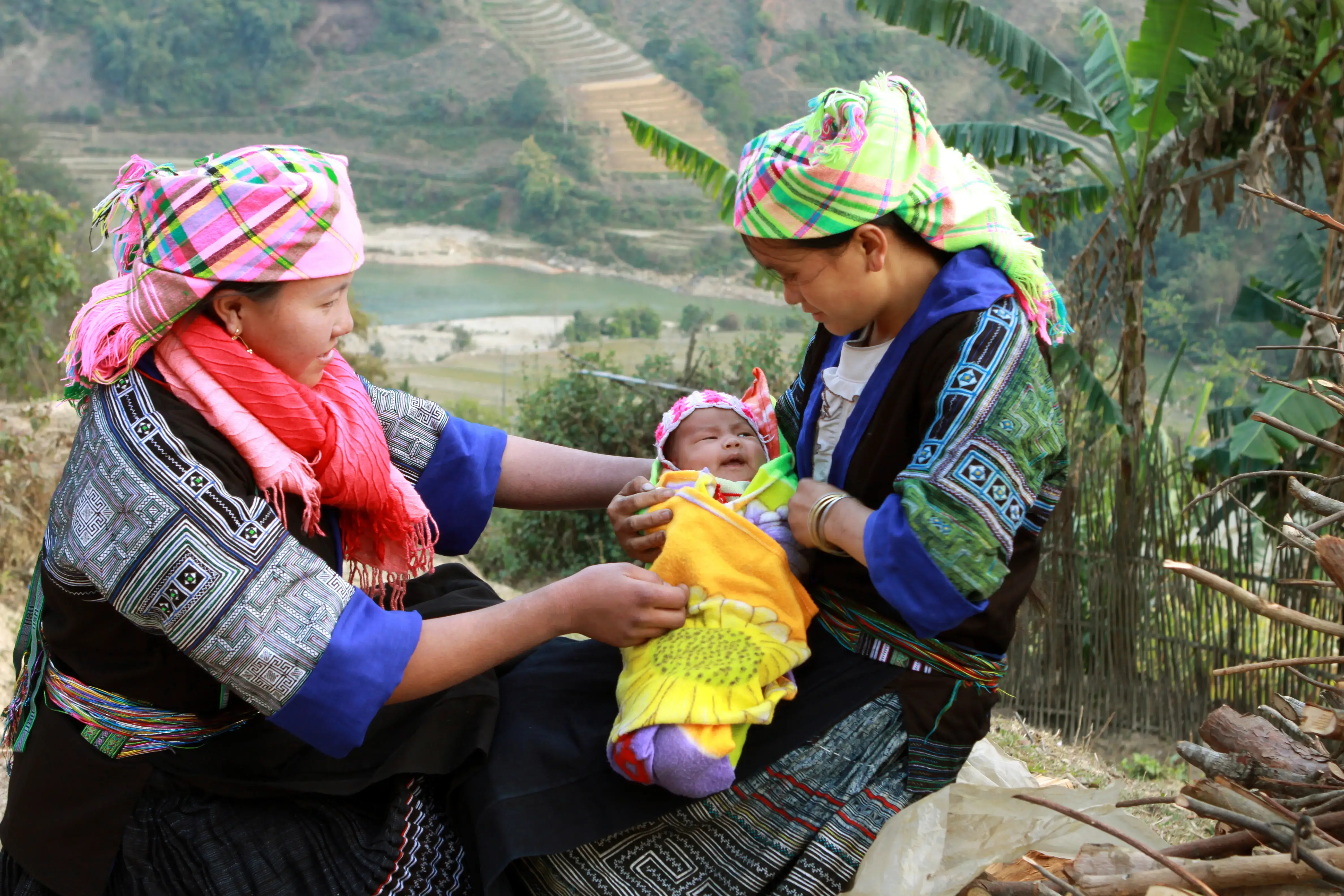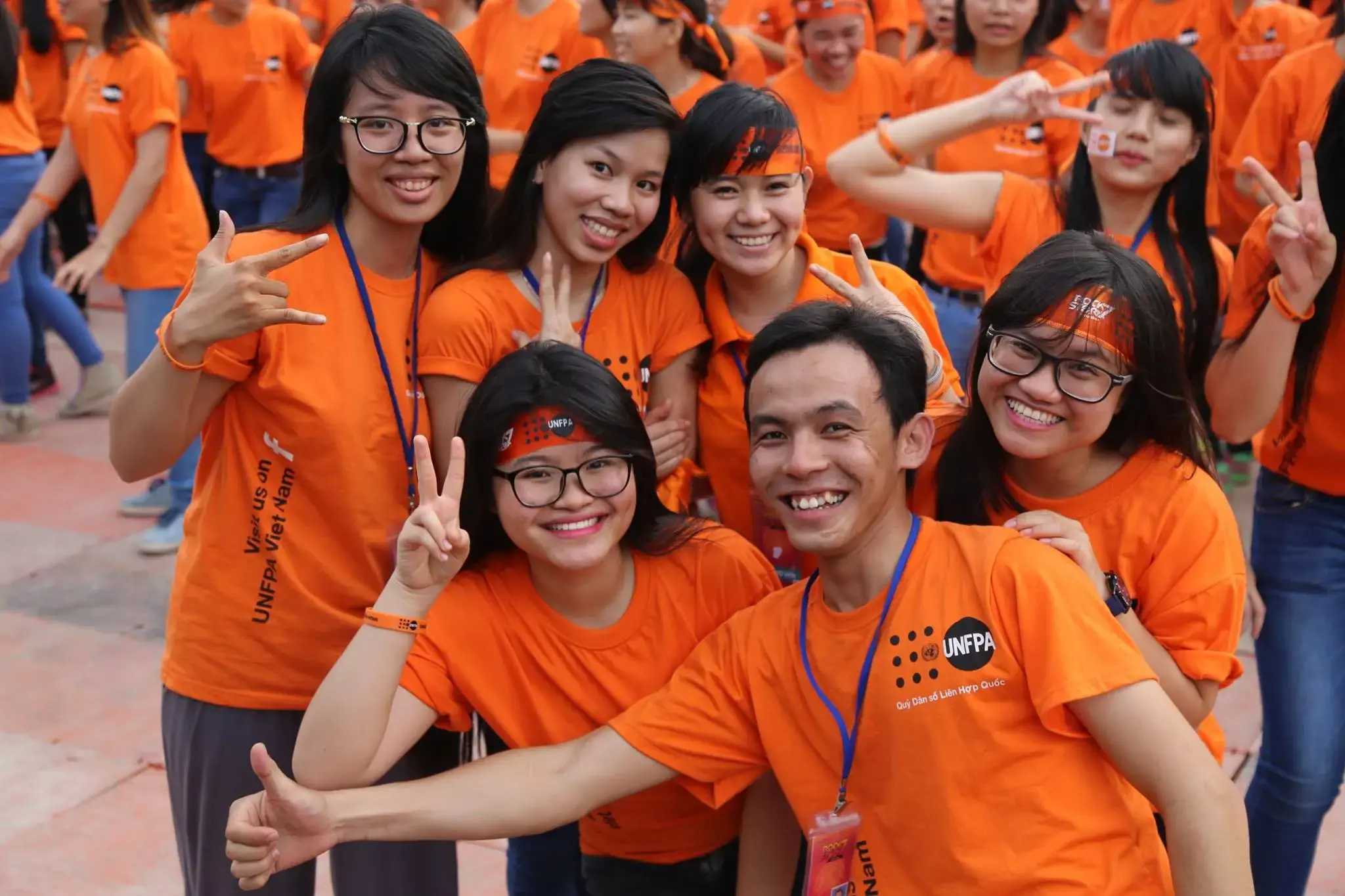Gender equality is a human right. Women are entitled to live with dignity and with freedom from want and fear. Gender equality is also a precondition for advancing development and reducing poverty. Empowered women contribute to the health and productivity of whole families and communities, and they improve prospects for the next generation.
Gender-based violence (GBV) is a manifestation of gender inequality which is maintained by unequal power structure and relation between women and men. Prevalence of violence against women (VAW) remains high in Viet Nam, yet still unaddressed. The findings from the 2019 national study on VAW showed that nearly 2 in 3 women aged from 15-64 has experienced at least one form of physical, sexual, psychological (emotional and controlling behaviors) and/or economic husband/partner violence at some point in their life, and 31.6% in the last 12 months. The VAW is still hidden when more than 90% did not seek help from public services and half of the women experienced violence told no one about it. The VAW not only have severe consequences for individual woman but also on national economy. The national productivity losses due to VAW are equivalent to 1.81 percent of 2018 GDP in Viet Nam – a significant drain on the national economy.
Gender-biased sex selection (GBSS) has been identified as the major cause of the unbalanced sex ratio at birth (SRB) in Viet Nam. The primary factor driving GBSS behavior among many couples is son preference, which is rooted in the traditional culture and patriarchal family systems. Adult sons usually hold a responsibility for old-age care for their parents, often sharing a household with them. Religious and social norms require sons to perform ancestor worship and other important life events. Sons are socially considered to enhance the status of parents and are usually favored in land and property inheritance. This favouring male children is a powerful manifestation of gender inequality and discrimination against women. Together, three factors of son preference, sex selection technology, and low and limited fertility create the socio-cultural conditions for GBSS in favour of sons bringing the SRB imbalance to 111.5 boys per 100 girls in 2019, which is the third highest in Asia after China and India. In some provinces, this skewed SRB even exceeded 126. When compared with normal SRB, the current situation in Viet Nam points to a yearly deficit of 45,900 female births in 2019. There will be a demographic implication with sex imbalance at birth. For instance, among adults aged 15–49 years, there will be 1.5 million more men than women by 2034. And this is estimated to further increase to almost 2.5 million excess men by 2059 if the SRB does not decline. It is the trend, which demographers commonly call as “marriage squeeze,” where men are likely to find it more difficult to find their partners. The sex imbalance at birth will have implications not only on men, but also on women, and relatively fewer women do not necessarily lead to an increased value of women and girls. To the contrary, in efforts to find women mates, early and child marriages, trafficking of women and girls, violence against women, and prostitution can increase substantially.
What We Do
To achieve UNFPA’s transformative results of zero violence against women and girls and other harmful practices, UNFPA Viet Nam prioritises:
- Evidence-based advocacy and technical advice for the revision of the Law on Domestic Violence Prevention and Control and other related laws and policies in line with international best practices where appropriate, including the developments of the Decrees guiding the implementation of the Law and data collection, and support for the development of the Gender Affirmation Law (GAL);
- Evidence-based community mobilisation initiatives in the context of digital transformation, targeting particularly young people and adolescents, and with participation of men and boys, to prevent GBV and harmful practices focusing on vulnerable groups. This includes initiatives addressing technology-facilitated GBV and image-based violence; and
- Pilot and innovative evidence-based male engagement strategies to address toxic masculinity and develop healthy relationships, by replication of the Fatherhood Programme in Bac Ninh, Da Nang and Lam Dong since 2023, with plans to extend to Khanh Hoa and Ha Tinh by 2025.
In addition, UNFPA Viet Nam develops comprehensive and coordinated national and sub-national systems to provide high quality multi-sectoral services for survivors of GBV. The proposed programme will generate support for:
- Expansion and institutionalisation of one stop service centres (OSSCs) by state agencies, which provide, in line with the UN Essential Service Package Guideline (ESP), integrated services including health and psychological care, social services, police protection, and legal advice. Currently four OSSCs are operational, with plans to establish two additional OSSCs in 2024 and two more under the KOICA-funded project by 2027. Additionally, the maintenance of the operation of a national hotline to provide immediate support and information for GBV survivors, it offers counseling, emergency assistance, and referrals to appropriate services, ensuring survivors receive timely and effective support;
- Development of national guidelines for multi-sectoral coordinated GBV response, clarifying roles and responsibilities of each sector and establishing a referral mechanism for survivor-centred service provision including to PWDs, ethnic minorities and migrant workers;
- Strengthened governance for multi-sectoral coordination at national and sub-national levels, applicable across the humanitarian-development nexus; and
- Strengthened GBV administrative data systems to ensure survivor-centred data collection to enhance GBV programming.

